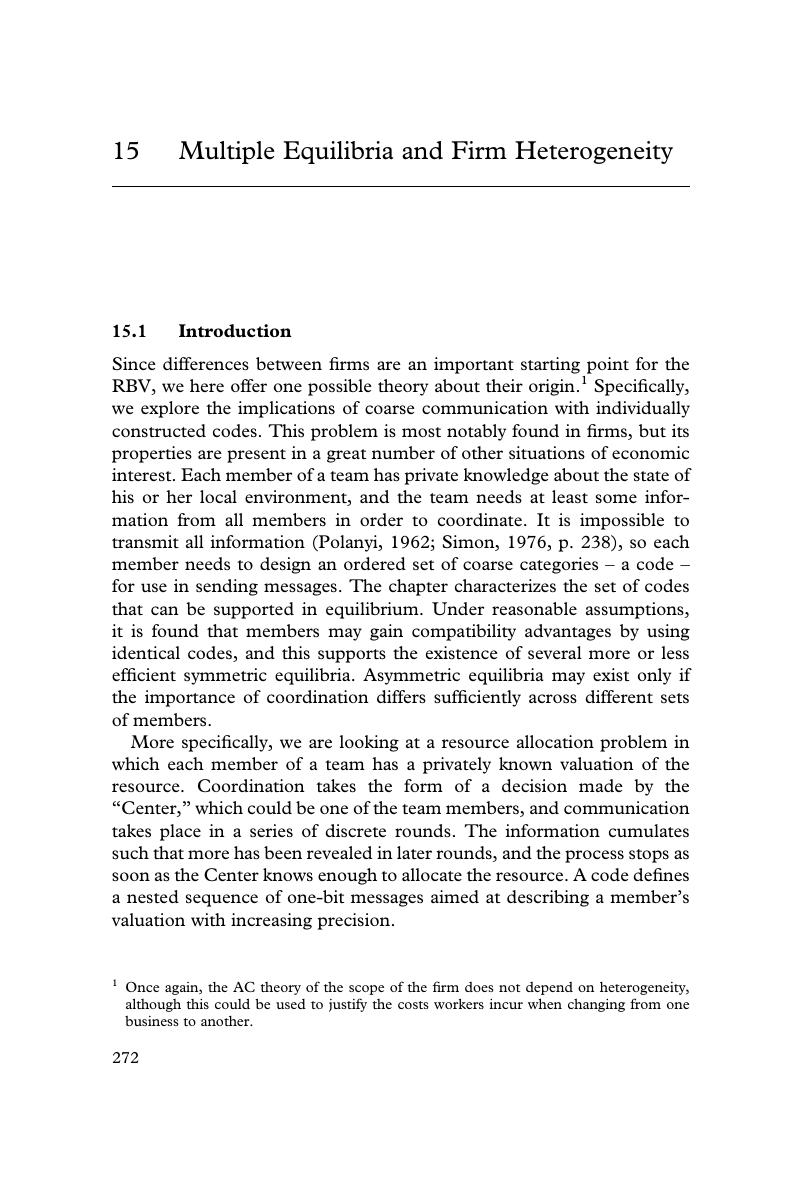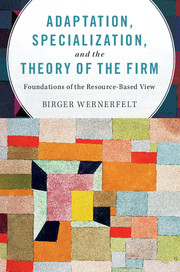Book contents
- Adaptation, Specialization, and the Theory of the Firm
- Adaptation, Specialization, and the Theory of the Firm
- Copyright page
- Dedication
- Contents
- Figures
- Tables
- Preface
- Part I Agenda
- Part II The Main Argument
- Part III Implications
- Part IV Empirical Tests
- Part V Foundations
- 14 Endogenously Incomplete Contracts
- 15 Multiple Equilibria and Firm Heterogeneity
- 16 On the Endogenous Amplification of Small Differences
- Part VI Postscript
- Index
- References
15 - Multiple Equilibria and Firm Heterogeneity
from Part V - Foundations
Published online by Cambridge University Press: 03 November 2016
- Adaptation, Specialization, and the Theory of the Firm
- Adaptation, Specialization, and the Theory of the Firm
- Copyright page
- Dedication
- Contents
- Figures
- Tables
- Preface
- Part I Agenda
- Part II The Main Argument
- Part III Implications
- Part IV Empirical Tests
- Part V Foundations
- 14 Endogenously Incomplete Contracts
- 15 Multiple Equilibria and Firm Heterogeneity
- 16 On the Endogenous Amplification of Small Differences
- Part VI Postscript
- Index
- References
Summary

- Type
- Chapter
- Information
- Adaptation, Specialization, and the Theory of the FirmFoundations of the Resource-Based View, pp. 272 - 283Publisher: Cambridge University PressPrint publication year: 2016



